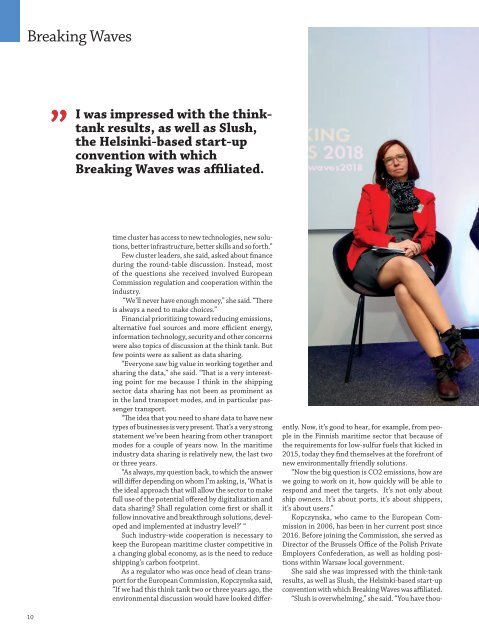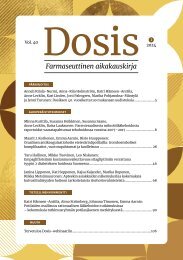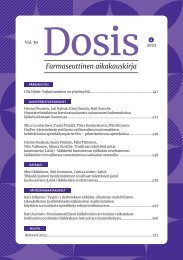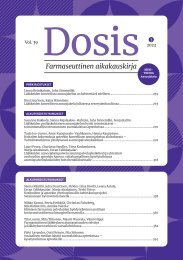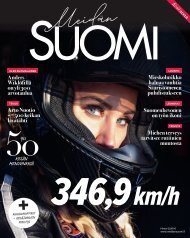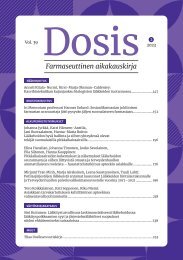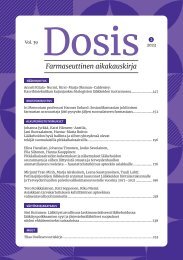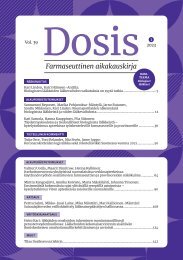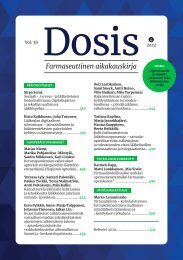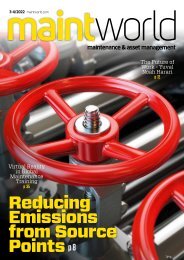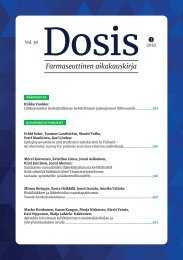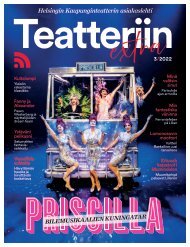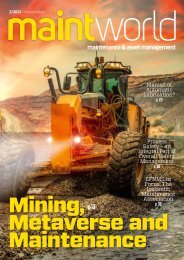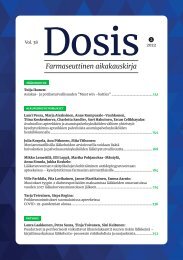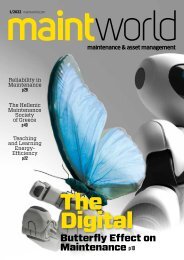Create successful ePaper yourself
Turn your PDF publications into a flip-book with our unique Google optimized e-Paper software.
Breaking Waves<br />
”<br />
I was impressed with the thinktank<br />
results, as well as Slush,<br />
the Helsinki-based start-up<br />
convention with which<br />
Breaking Waves was affiliated.<br />
time cluster has access to new technologies, new solutions,<br />
better infrastructure, better skills and so forth.”<br />
Few cluster leaders, she said, asked about finance<br />
during the round-table discussion. Instead, most<br />
of the questions she received involved European<br />
Commission regulation and cooperation within the<br />
industry.<br />
“We’ll never have enough money,” she said. “There<br />
is always a need to make choices.”<br />
Financial prioritizing toward reducing emissions,<br />
alternative fuel sources and more efficient energy,<br />
information technology, security and other concerns<br />
were also topics of discussion at the think tank. But<br />
few points were as salient as data sharing.<br />
“Everyone saw big value in working together and<br />
sharing the data,” she said. “That is a very interesting<br />
point for me because I think in the shipping<br />
sector data sharing has not been as prominent as<br />
in the land transport modes, and in particular passenger<br />
transport.<br />
“The idea that you need to share data to have new<br />
types of businesses is very present. That’s a very strong<br />
statement we’ve been hearing from other transport<br />
modes for a couple of years now. In the maritime<br />
industry data sharing is relatively new, the last two<br />
or three years.<br />
“As always, my question back, to which the answer<br />
will differ depending on whom I’m asking, is, ‘What is<br />
the ideal approach that will allow the sector to make<br />
full use of the potential offered by digitalization and<br />
data sharing? Shall regulation come first or shall it<br />
follow innovative and breakthrough solutions, developed<br />
and implemented at industry level?’ “<br />
Such industry-wide cooperation is necessary to<br />
keep the European maritime cluster competitive in<br />
a changing global economy, as is the need to reduce<br />
shipping’s carbon footprint.<br />
As a regulator who was once head of clean transport<br />
for the European Commission, Kopczynska said,<br />
“If we had this think tank two or three years ago, the<br />
environmental discussion would have looked differently.<br />
Now, it’s good to hear, for example, from people<br />
in the <strong>Finnish</strong> maritime sector that because of<br />
the requirements for low-sulfur fuels that kicked in<br />
2015, today they find themselves at the forefront of<br />
new environmentally friendly solutions.<br />
“Now the big question is CO2 emissions, how are<br />
we going to work on it, how quickly will be able to<br />
respond and meet the targets. It’s not only about<br />
ship owners. It’s about ports, it’s about shippers,<br />
it’s about users.”<br />
Kopczynska, who came to the European Commission<br />
in 2006, has been in her current post since<br />
2016. Before joining the Commission, she served as<br />
Director of the Brussels Office of the Polish Private<br />
Employers Confederation, as well as holding positions<br />
within Warsaw local government.<br />
She said she was impressed with the think-tank<br />
results, as well as Slush, the Helsinki-based start-up<br />
convention with which Breaking Waves was affiliated.<br />
“Slush is overwhelming,” she said. “You have thou-<br />
10


